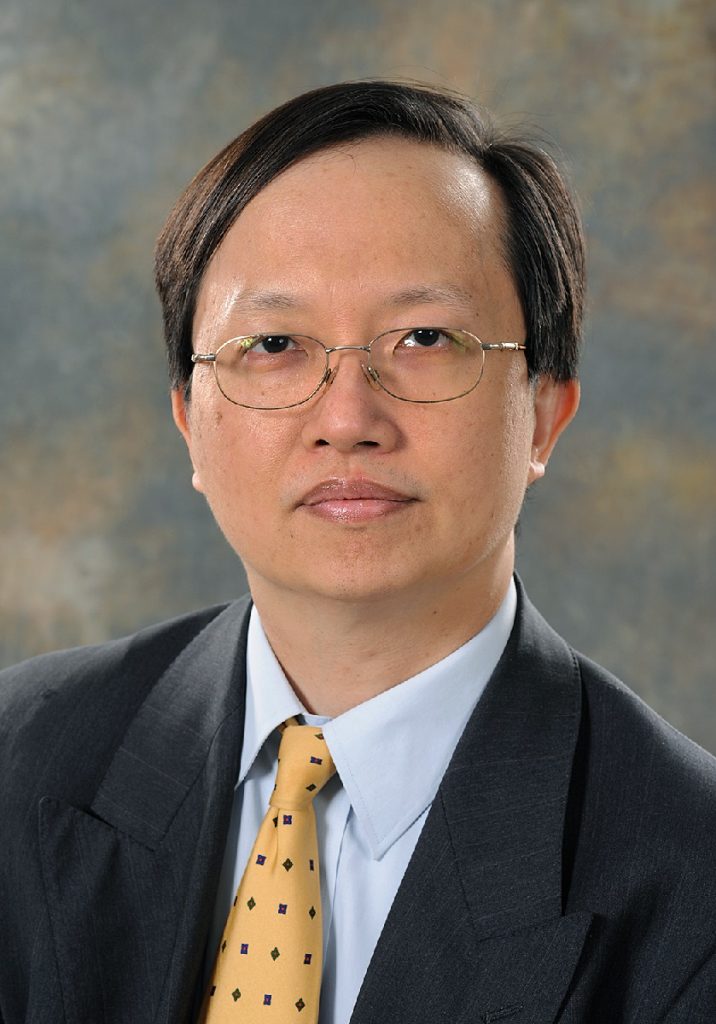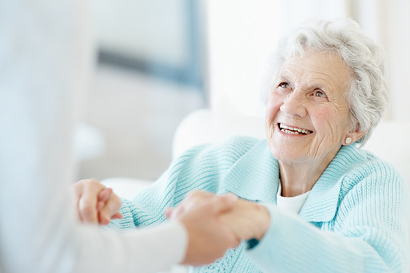January 15, 2021, by School of Medicine
50 at 50: Integrating clinical care, research and education in the management of older women with breast cancer
 As a breast surgeon who finished training in Hong Kong, I came to Nottingham in 1995 as my sabbatical to learn from the world-famous Professor Roger Blamey, Professor of Surgical Sciences, University of Nottingham. Roger established the Nottingham Breast Unit in 1970s and developed the Nottingham Prognostic Index (NPI), now being used internationally to provide clinical outcome information and to guide treatment decision in women following breast cancer surgery. It is one of the major achievements of the School as we celebrate 50 years of Medicine. During the 9-month period, Roger asked me to look after the so-called ‘Elderly Primary Breast Cancer (EPC) clinic’ where older women with breast cancer diagnosed at >70 years were seen, given results and treatment plans, and followed up. As I subsequently realised, that encounter ‘transformed’ my career and possibly my life, so I can now share how my personal reflections, as listed below, have led to my contribution to the School’s 50th anniversary theme on ‘Transforming medicine’.
As a breast surgeon who finished training in Hong Kong, I came to Nottingham in 1995 as my sabbatical to learn from the world-famous Professor Roger Blamey, Professor of Surgical Sciences, University of Nottingham. Roger established the Nottingham Breast Unit in 1970s and developed the Nottingham Prognostic Index (NPI), now being used internationally to provide clinical outcome information and to guide treatment decision in women following breast cancer surgery. It is one of the major achievements of the School as we celebrate 50 years of Medicine. During the 9-month period, Roger asked me to look after the so-called ‘Elderly Primary Breast Cancer (EPC) clinic’ where older women with breast cancer diagnosed at >70 years were seen, given results and treatment plans, and followed up. As I subsequently realised, that encounter ‘transformed’ my career and possibly my life, so I can now share how my personal reflections, as listed below, have led to my contribution to the School’s 50th anniversary theme on ‘Transforming medicine’.
I later returned to conduct breast cancer research and then joined the University, all happened around the time when Roger was close to retirement. Naturally I took over the running of the EPC clinic.
Reflection 1: clinical care – I wanted to build on the foundation laid by Roger and realised the importance of joint care. He had already pioneered a number of joint clinics in Nottingham, which are now recognised as standard of care e.g. surgeon and radiologist working jointly in diagnostic breast clinic, and surgeon, oncologist and specialist breast care nurse working jointly in advanced breast cancer clinic. However, he did not create one for the EPC clinic! Therefore, I brought along my NHS colleagues, Dr David Morgan, an oncologist and Linda Winterbottom, a breast care nurse, who shared my vision to jointly run the clinic, aiming to provide holistic care to these older women.
 Reflection 2: research – I thought the clinic was a great platform to conduct research for this particular population, after realising that most cancer studies, including those on breast cancer, had been done primarily in younger patients. Even the NPI was developed for women diagnosed at ≤70 years! Having said that, most breast cancer cases in fact were and are found in older patients, and the older population has been growing! Therefore I gradually started a research programme, with the help of Professor Ian Ellis and Dr Morgan, dedicated to older women with primary breast cancer. Collaborations, both in the UK and internationally, later followed. I will share more about this part of the journey in the public lecture on 21 January 2021.
Reflection 2: research – I thought the clinic was a great platform to conduct research for this particular population, after realising that most cancer studies, including those on breast cancer, had been done primarily in younger patients. Even the NPI was developed for women diagnosed at ≤70 years! Having said that, most breast cancer cases in fact were and are found in older patients, and the older population has been growing! Therefore I gradually started a research programme, with the help of Professor Ian Ellis and Dr Morgan, dedicated to older women with primary breast cancer. Collaborations, both in the UK and internationally, later followed. I will share more about this part of the journey in the public lecture on 21 January 2021.
Reflection 3: education – I love teaching and training and I try my best to be a good role model to inspire future generations of healthcare professionals and researchers. During the course of development of this research programme, a number of medical students and junior doctors came along to contribute. We were able to start building a clinical database for this series of older women because of a couple of enthusiastic high school students doing work experience before they entered into medical school! Another example is Miss Ruth Parks who is our own graduate and I supervised her BMedSci project. She is now our clinical research fellow completing a PhD on the biology of breast cancer in older women. Furthermore, in 2010, I pioneered the Symposium of Primary Breast Cancer in Older Women, which has since become a biennial event hosted by the University under the auspices of the International Society of Geriatric Oncology. Being the only meeting in the UK of its kind, it serves as a platform for education, sharing good practice and research findings, and for listening to our patients – the session on interviewing patients and their carers is the highlight of the event!
Clinical care, research and education are inter-related and commitment to and improvement in one area would inform and transform the others. Over the last two decades at the University, I have learned and remain strongly convinced of the importance of integrating these three pivotal areas in medicine, through their application in the management of older women with breast cancer. I believe this is what I have done and will continue to do in the years ahead.
By Professor Kwok-Leung Cheung, Professor of Breast Surgery and Medical Education

What a super post. Completely agree with the importance of inter weaving Clinical Care, research and education. You are a great person to work with and an exemplary role model for many students and colleagues. Thank you.
Thank you so much Christine for your kind words. KL